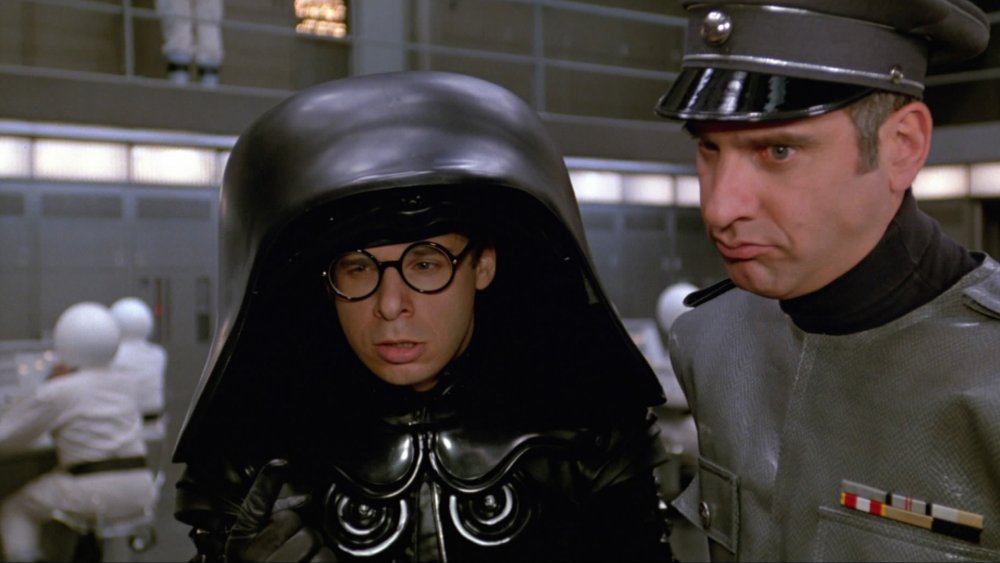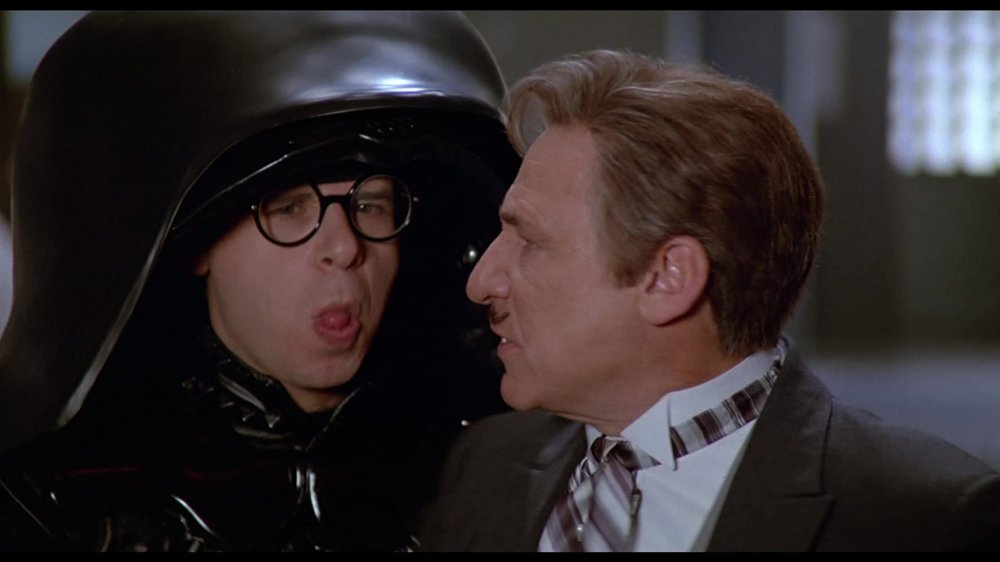The Spaceballs Joke That Went Over Your Head As A Kid
Most fans of Mel Brooks' iconic Star Wars satire, Spaceballs, could easily recite the film's most memorable lines. From the (literal) jammed radar scene to Lord Dark Helmet's ridiculous "father's brother's nephew's cousin's former roommate" reveal, the comedy is loaded with rewatchable moments. Now, over thirty years after the release of the 1987 sci-fi spoof, there are still little known details and fun behind the scenes facts to discover. And believe it or not, Mel Brooks hid one of the best jokes right in the opening credits.
One of the Star Wars franchise's most recognizable components is the famous opening crawl, in which a tilted upward rolling text gives background to the story we are about to see. The text then disappears out of view and with each subsequent sequel, the crawl shows us a new title. Brooks perfectly satirizes the crawl, as a Reddit user named tvkyle has pointed out, by writing "Chapter Eleven" into the opening text, and when the crawl is far enough away, the line "If you can read this you don't need glasses" also appears.
Considering that Spaceballs is the first and only Spaceballs film, the fact that it starts with Chapter 11 is, on its face, a perfect and subtle jab at Star Wars (which famously started with Episode IV) and its many sequels — one that kids might not be so quick to pick up on. However, the joke runs even deeper than that.
Mel Brooks needs more money for Spaceballs
In fact, the Chapter 11 joke may not just be Brooks' way of poking fun at the list of never-ending Star Wars sequels. It might be a meta financial joke that few kids watching the film would understand. As the aformentioned Redditor argued, the joke is "a two-fer: poking fun at the Star Wars episode numbers, and also the term "Chapter Eleven" referring to bankruptcy." This is probably accurate, because it's hard to imagine the number 11 would have been chosen at random — given the various themes of the film, it's probably a play on chapter 11 bankruptcy, often considered both the most complicated and expensive of the various types of bankruptcy proceedings, since it involves a reorganization of the debtor's assets and debt.
As you examine Spaceballs closely, it becomes clear that the movie is packed with meta references to financial woes, marketing, and the need for more money. One of the best jabs is the shot at Star Wars merchandising — "Where the real money from the movie is made," Brooks says in the film, playing a Yoda ripoff named Yogurt — and this running joke continues through the end of the film, when Yogurt blatantly says: "God willing, we'll all meet again in Spaceballs 2: The Search for More Money."
In any case, here's hoping the filmmakers don't need to file for bankruptcy, and that our wish for Spaceballs 2 comes true someday.

